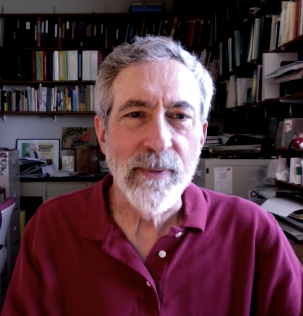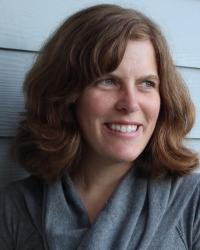The ASN has chosen three new officers. We congratulate the winners, whose election statements are presented below, as well as the distinguished runners-up, Greg Grether, Gil Rosenthal, and Martha Burford Reiskind.
Results of the 2022 Election
Posted on
Jeff Conner, President 2024 (serving 2023–2027)
Election Statement:
I am honored to be nominated to be President of ASN because I think my career has exemplified the ASN goal of conceptual unification of the biological sciences. My lab integrates evolution, genetics, genomics, and ecology in the laboratory, greenhouse, and field to understand how natural selection on weeds and native plants produces (sometimes very rapid) adaptation to a variable environment. I started out as a behavioral ecologist, with my first papers on lizards and beetles, and then switched to studying pollinator-mediated floral evolution during my postdoc. Current work also includes stamen loss after the transition to selfing, adaptation of a weed to agricultural habitats, and field estimates of fitness effects of duplicate gene knockouts.
I received my Ph.D. in the Section of Neurobiology and Behavior at Cornell, then moved one building over to do an NIH individual NRSA postdoctoral fellow in evolutionary genetics. I was an Assistant Professor at University of Illinois Urbana-Champaign before moving to KBS where I am now Professor; I was also a Distinguished Sabbatical Scholar at the National Evolutionary Synthesis Center. I was elected as a Fellow of the American Association for the Advancement of Science (AAAS) in 2011 and won Outstanding Faculty awards at the college and university level, but my favorite awards are my college graduate and junior faculty mentoring awards, as I was nominated by my mentees for both and I see mentoring as the most important part of my job. I still often hear that my Primer of Ecological Genetics (with Dan Hartl) has been useful for graduate students. I was Handling Editor (now just called Editor) at Evolution, edited or co-edited special issues of the Methods in Ecology and Evolution and International Journal of Plant Sciences, and have served on the editorial boards of Evolution, Journal of Evolutionary Biology, Oecologia, and IJPS. I have served on several NSF and one USDA panels and was chair of the Plant Population Ecology Section of the Ecological Society of America. I honed leadership skills that I genuinely didn’t realize I had during almost two years as Interim Director of KBS.
I am afraid that beyond being a member for decades, attending the joint meetings many times and publishing papers in The American Naturalist, I have not been as involved in ASN as I should have been! However, I am committed to doing a great job leading ASN if elected. I think the highest priority for ASN must be redoubling the great efforts underway to increase DEI in the Society and in our field; we have made progress on this in my lab and at KBS. I would advocate strongly for more support and mentoring for undergraduates and graduate students from underrepresented groups, including at our meetings, for including DEI efforts as an explicit criterion for ASN awards, and for a continued emphasis on safety and respectful behavior at our meetings.
Lauren Buckley, Vice President 2024 (serving 2023–2025)
Election Statement:
Reading The American Naturalist inspired me to shift my undergraduate aspirations from engineering to biology. I may have been misled by the journal title when looking for examples of ‘muddy boots’ biology, but it turns out the articles, with their integration of data and modeling in pursuit of conceptual advances, provided optimal inspiration for my biological career. I am thus honored to be nominated to serve as VP of the ASN. My research integrates modeling, field and lab collection of ecological and physiological data, and informatics to identify the organismal mechanisms underlying responses to climate change. I use the mechanisms to develop ecological and evolutionary forecasting approaches.
I am a Professor of Biology at the University of Washington, where I am an affiliate of the Center for Quantitative Science and the eScience Data Science Institute and a board member of the Program in Climate Change. I studied biology and math at Williams College, conducted graduate research at Stanford University, and held postdoctoral fellowships at the National Center for Ecological Analysis and Synthesis (NCEAS) and the Santa Fe Institute. I have been recognized as a Kavli Frontiers of Science Fellow and a Future Leader of the Science and Technology in Society Forum.
I strive to build capacity for integrative, quantitative, collaborative, and open science to accelerate biology and its applications to environmental challenges in a manner that promotes equity and inclusion. I lead the TrEnCh project focused on developing computational and visualization tools to Translate Environmental Change into biological responses for research, education, and outreach (trenchproject.com). I have organized several symposia and workshops as well as NCEAS and National Evolutionary Synthesis Center working groups.
I have served on the American Naturalist editorial board since 2018. I am grateful for The American Naturalist publishing one of my initial papers and hope to work with the ASN to facilitate other early career researchers adopting integrative approaches.
I propose to organize a VP symposium highlighting integrative work by diverse scientists repeating historical experiments to understand mechanisms underlying responses to environmental change. I look forward to assisting the ASN in advancing conceptual unification of the biological sciences by capacity building, promoting a diverse and inclusive society, and inspiring integrative biological approaches if elected.
Santiago Ramírez, Treasurer 2023–2025
Election Statement:
I am thrilled to be nominated as a candidate for Treasurer for the American Society of Naturalists. As a supporter and member of ASN, and I would be honored to serve in this capacity. I am an evolutionary biologist, and my research focuses on the evolution of chemical signals in bees and the role that these signals play in a variety of biological contexts, including mate recognition, sexual selection, speciation, social interactions (e.g. eusociality), and species interactions (e.g. mutualism between plants and pollinators). To address these broad questions, my research combines chemical ecology, functional genomics, populations genetics and natural history.
I received my B.Sc. from Universidad de los Andes (Bogotá, Colombia) in 2001. I completed my Ph.D. in the Department of Organismic and Evolutionary Biology at Harvard University in 2008. Subsequently, I worked as a postdoctoral fellow at the University of California Berkeley between 2008 and 2013. I am now an Associate Professor in the Department of Evolution and Ecology at the University of California Davis, where I have been since 2013. I was awarded a Packard Fellowship in 2014, and recently I was elected Chancellor Fellow at UC Davis.
Currently, I am an Associate Editor for the journal Evolution, and I have served as a reviewer for multiple journals in the areas of evolution and ecology. I have participated in diverse departmental and university-wide committees. My extensive experience, knowledge and organizational skills would allow me to assume the important role of Treasurer for the American Society of Naturalists. I have been a member of the ASN for several years, and I have been an avid reader of The American Naturalist since I was a graduate student. Becoming the Treasurer for ASN is an ideal opportunity for me to contribute in meaningful ways to the growth and stability of our society.
The Treasurer fulfills an important role in the American Society of Naturalists. This officer position oversees many of the day-to-day activities of the society, including making payments to publishers, issuing grants and awards in a timely manner, and making sure that all the financial information is organized and updated in a regular basis. I would ensure open and fluid communication with other officers and accountants. In addition, as a member of the executive committee I would ensure that our society continues its mission of excellence in the fields of evolution and ecology, and also continue with its mission to increase diversity and representation of scientists around the world.

